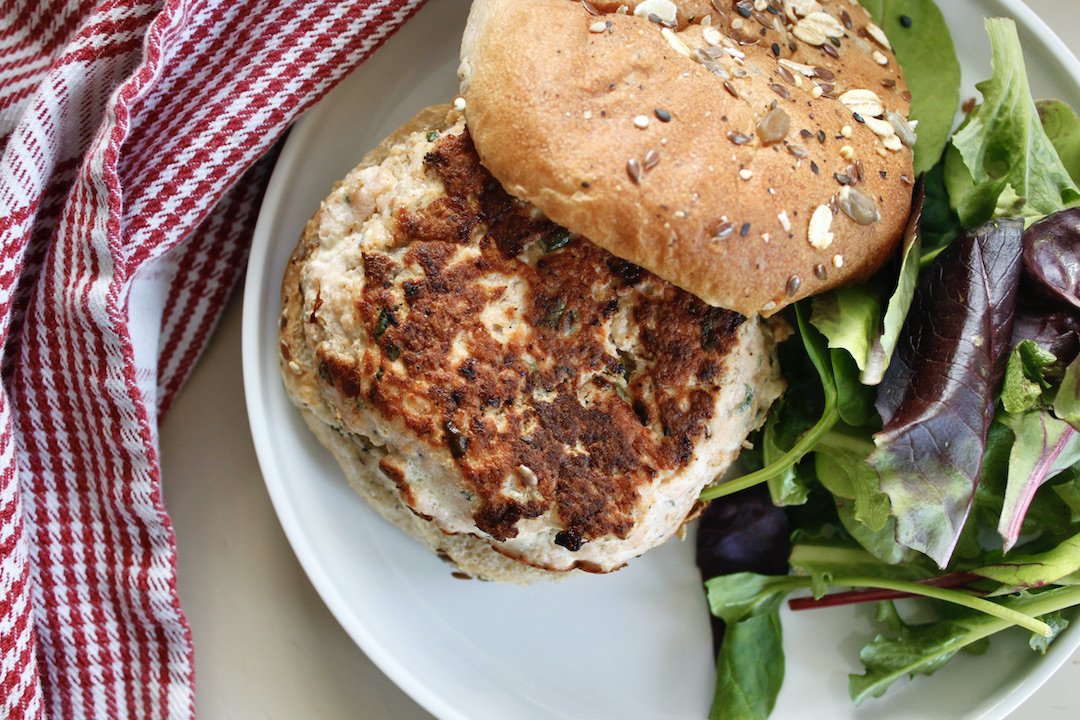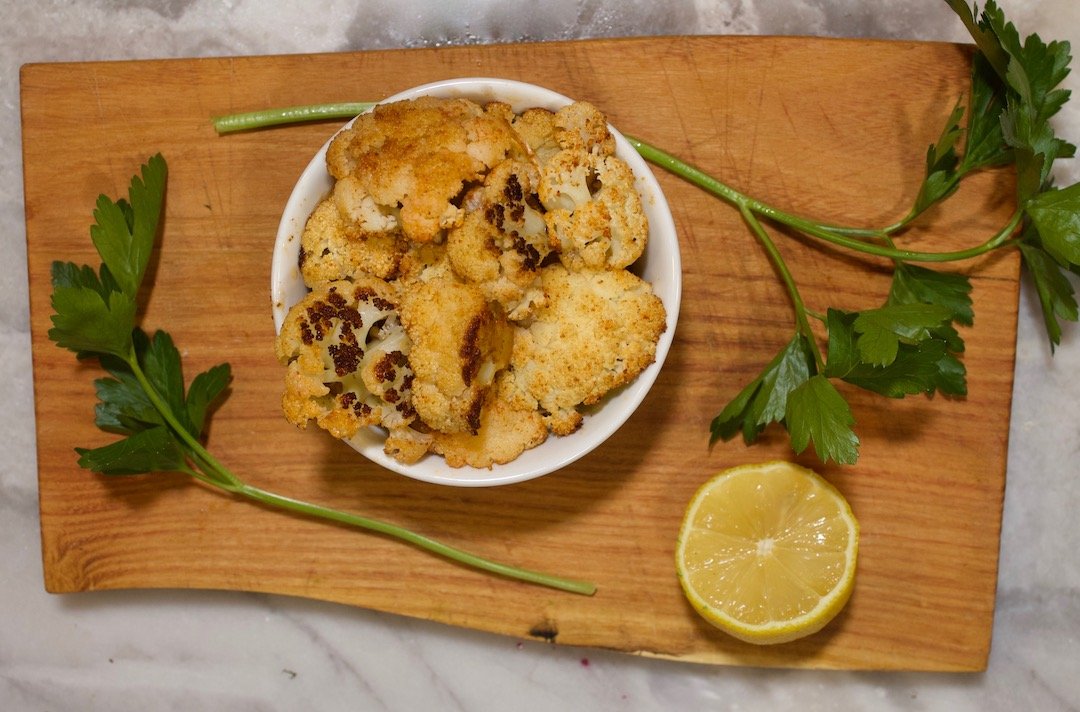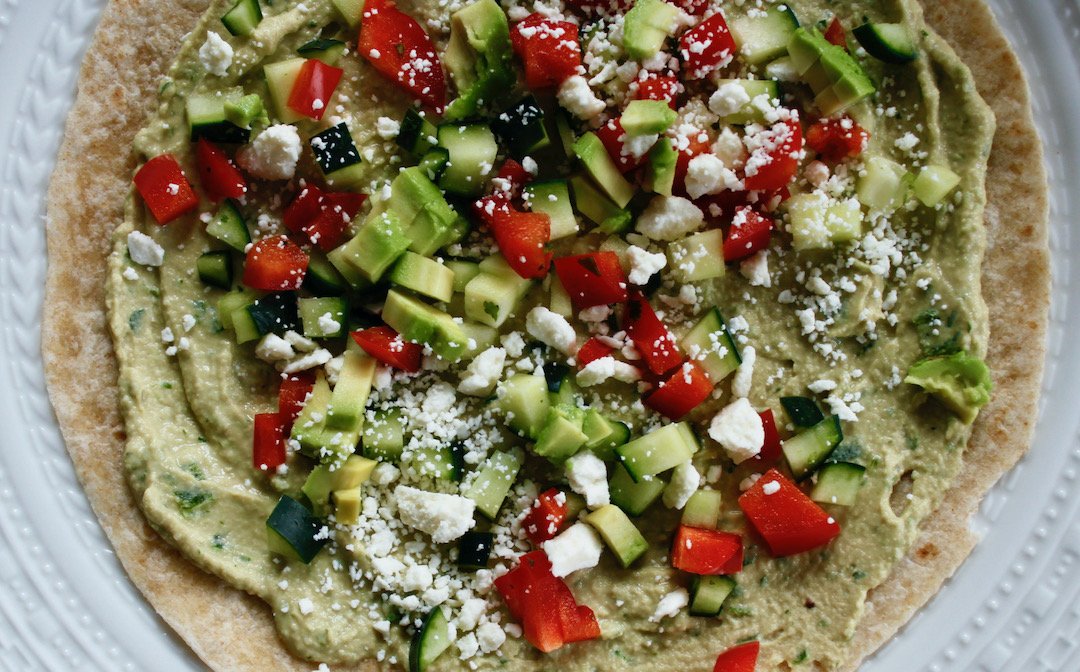In general, none of the dietitians at To Taste are fans of promoting “diets”. However, there is one diet that we feel confident recommending: the Mediterranean Diet. Rather than a diet in the traditional sense (i.e. you go on it to eventually go off it), the Mediterranean Diet is a simple and sustainable eating pattern that can be followed for life. Read on for a Mediterranean Diet 101 crash course!
What is the Mediterranean Diet?
The Mediterranean Diet is a lifestyle eating pattern that is strongly correlated with disease prevention and longevity. (1)
In the 1960s, researchers discovered that people living in the Mediterranean region suffered from significantly lower rates of chronic diseases such as heart disease, obesity, and diabetes. There are many factors which contribute to these lower disease rates, including diet, social influences, and physical activity. Decades of research reveal that people living in the Mediterranean region consume a variety of whole, minimally-processed, and plant-based foods, which contribute to their long and healthy lives. (2)
Why should you follow the Mediterranean Diet?
Rated as the World’s Best Overall Diet
Each year, U.S. News & World Report ranks the world’s best diets, and the Mediterranean Diet consistently ranks as the best overall diet.
*Fun fact! Chef V was one of the featured experts in the 2022 review process of the world’s best diets!
One difference between fad diets and the Mediterranean Diet is that this is a diet that you can (and should) stick to for more than just a few weeks or months. Time and time again, research shows that the vast majority of people that go on weight loss diets regain that weight, and usually plus some! (3, 4, 5, 6, 7)
Because the Mediterranean Diet focuses on meal patterns and food groups, it is very easy to adopt and stick to.
Easy to Follow
Unlike most diets that focus on eliminating certain foods or food groups, counting macronutrients, or tracking calories, the Mediterranean Diet is a diet of inclusion.
Rather than dictating what not to eat, Mediterranean eating principles focus more on what to eat. Eat more fruits, more vegetables, more whole grains, more beans, more nuts and seeds, and more healthy oils. (8)
Adaptable to Any Cuisine
You don’t have to live in Greece, Italy, or Spain to enjoy the benefits of the Mediterranean Diet. Although people in these countries likely have easier access to freshly pressed olive oil and catch-of-the-day seafood, global supply chains and modern grocery stores allow us to enjoy many of these foods even in the landlocked states of the United States.
Plus, because this diet focuses on food groups rather than specific foods, you don’t even have to like Greek food, Italian cuisine, or Spanish dishes to follow the Mediterranean Diet. Want a burger? Great! Cook up a bean-based patty, top with fresh avocado, tomato, onions and mushrooms, and place between two whole wheat buns. Instead of fries, serve with a side of roasted sweet potatoes or a light and fresh salad with chopped almonds and a strawberry vinaigrette. Fruits, vegetables, whole grains, beans, nuts, seeds, and healthy oils – this meal has it all! (9)
Sustainable for the Planet
Plant-forward diets are better for the environment, and thus, the plant-focused nature of the Mediterranean Diet makes it a very sustainable diet. (10)
Budget-Friendly
Plant foods tend to be less expensive than animal products, so a Mediterranean eating pattern can be more sustainable for your budget too.
Of course, there are certain Mediterranean foods, such as fresh artichokes, artisan olive oils, or shelled pistachios, that can be expensive and could potentially deter you from adopting a Mediterranean diet.
However, if you’re creating a Mediterranean shopping list on a budget, ingredients such as dried beans, frozen vegetables, canned fish, and whole grains are relatively inexpensive and still qualify as Mediterranean Diet foods. (11)
Use our convenient ingredient guide to help you select ingredients that are nourishing and budget-friendly.
Health Benefits of the Mediterranean Diet
Heart Health
One of the most studied benefits of the Mediterranean Diet is its effects on promoting heart health. (12) Studies have shown that individuals that follow this eating pattern suffer from lower rates of heart disease, dyslipidemia, and hypertension. (13, 14)
Studies attribute many of these benefits to high consumption of olive oil, beans, legumes, fatty fish, fresh herbs, and spices. (15, 16, 17, 18)
However, the vast majority of studies reveal that there is not one single food or nutrient that accounts for these health benefits. Rather, the combination of foods in the Mediterranean Diet is what offers the cardioprotective benefits. (19)
Decreased Cancer Risk
Although not all forms of cancer are preventable, there are certain lifestyle factors that can decrease risk. Chronic inflammation is a major contributor to cancer risk, and there are certain dietary factors that can lower levels of systemic inflammation. (20)
High-fiber diets have been shown to decrease the risk of colon cancer, and many of the foods in the Mediterranean diet, such as beans, fruits, vegetables, and whole grains, are great sources of fiber. (21, 22)
Additionally, foods high in antioxidants may reduce inflammation, which may decrease cancer risk. (23) Deeply colored fruits and vegetables, such as kale, spinach, berries, and sweet potatoes contain phytonutrients that have been shown to reduce inflammation and therefore potentially reduce cancer risk. (24)
Brain Health
Long-time followers of the Mediterranean Diet suffer lower rates of dementia and Alzheimer’s disease. This can be attributed to many dietary factors: limited intake of refined carbohydrates, high intake of healthy fats and oils, and low intake of saturated and trans fatty acids. (25, 26, 27, 28, 29)
Longevity
The Mediterranean Region is home to two Blue Zones – areas of the world with the highest reported concentrations of centenarians (people living over the age of 100). Less cancer, less heart disease, and less dementia naturally lead to longer lives. Again, the combination of the foods consumed in the Mediterranean Diet is what provides the recipe for a long, disease-free life. (30, 31)
What to Eat on the Mediterranean Diet
Although this isn’t a strict diet in the traditional sense, there are still certain foods that should be included and others that should be limited or avoided. (32) These recommendations are based on the Mediterranean Diet Pyramid.
Aim to consume a variety of fruits, vegetables, whole grains, beans, nuts, seeds, and healthy oils every day. Consume animal proteins, such as poultry, eggs, fish, and dairy a few times per week. Choose beverages such as tea, coffee, water, and red wine (if you consume alcohol).
Foods to Eat on the Mediterranean Diet
The majority of your diet should focus on the following foods. The examples listed in each category are just some ideas, but these lists are by no means exhaustive. Choose foods from each category that you enjoy, and be willing to try new foods too!
EAT THESE FOODS DAILY
- Fruits: apples, apricots, avocados, berries, dates, figs, grapes, lemons, limes, olives, oranges, pears, plums
- Vegetables: beets, broccoli, carrots, cauliflower, cucumber, garlic, herbs, kale, onions, peppers, potatoes, spinach, tomatoes
- Whole Grains: amaranth, brown rice, corn, farro, millet, quinoa, whole wheat, wild rice
- Beans/Legumes: black beans, black-eyed peas, chickpeas, lentils, kidney beans, navy beans
- Nuts: almonds, cashews, hazelnuts, pecans, pistachios, walnuts
- Seeds: chia seeds, flaxseeds, hemp seeds, pumpkin seeds, sunflower seeds
- Extra Virgin Olive Oil
- Healthy Beverages: water, tea, coffee, red wine (one drink per day for women; two drinks per day for men)
EAT THESE FOODS A FEW TIMES PER WEEK
- Dairy: kefir, Greek yogurt, feta cheese, goat cheese, parmesan cheese
- Poultry: turkey, chicken
- Eggs
EAT THESE FOODS ABOUT TWICE PER WEEK
- Fish: salmon, sardines, anchovies, tuna
- Shellfish: shrimp, clams, mussels, crab
Need some culinary inspiration? Here are some of our favorite simple Mediterranean diet recipes.
If you need some guidance on how to put together a balanced meal, check out our article on how to do a healthy plate makeover.
Foods to Limit on the Mediterranean Diet
Although it’s not necessary to avoid these foods entirely, it’s best to limit how much and how frequently you eat them. Aim to view these as “special occasion” or “once in a while” foods.
- Red Meat: beef, pork, lamb, bison
- Processed Meat: bologna, bacon, hot dogs, pepperoni, sausage
- Refined Carbohydrates and Sugar: cake, chips, cookies, crackers, donuts, pastries, soda, white bread, white pasta
Dining Out on the Mediterranean Diet
One of the trickiest parts about following certain diets is figuring out what to order at restaurants. Fortunately, it’s fairly easy to stick to the Mediterranean diet while dining out. Simply try to incorporate as many of the recommended food groups as possible.
Here are some tips that can help you stay on track with your health goals:
- Choose water, unsweetened tea, or a glass of wine instead of soda.
- Start the meal with a salad and choose vinaigrettes over creamy dressings. Better yet, ask for a side of olive oil and vinegar and dress the salad yourself.
- Order fresh vegetables or a salad in place of french fries or refined grains.
- Choose whole grains whenever possible.
- Be picky with your protein. Look for the seafood options on the menu or choose dishes that contain plant-based protein. And if ordering meat, choose smaller portion sizes or split it with someone – restaurants tend to over serve!
- For dessert, ask for a bowl of fresh fruit. If that’s not available but you still want something sweet, split dessert with someone.
And remember, social connection is part of the Mediterranean eating pattern too, so don’t get so focused on ordering the exact “right” food that you forget to connect with the people you came with!

How Do I Start the Mediterranean Diet?
Measure Up
One of the first things that you can do to get started on the Mediterranean diet is to determine how closely your current diet aligns with the Mediterranean diet. You can determine your Mediterranean diet score by taking this short assessment created by OldWays. This can be a helpful tool for identifying which areas of your diet could use the most improvement.
The quiz measures how closely your current diet aligns with the Mediterranean diet on a scale from 0-9. Whether you score 0 or 7, it’s been shown that just a two-point increase can significantly decrease all-cause mortality risk! (33)
Test yourself again after a few months of following the Mediterranean diet, and hopefully you’ll see an improvement in your score (and your health!).
Stock Your Kitchen
You’re a lot more likely to eat fruit if you have fruit on the counter. You’re also a lot more likely to eat sugary cereal if you have sugary cereal on the counter. Your eating environment plays a huge influence in what, how, why, and how much you eat. (34, 35)
Set yourself up for success by stocking your kitchen with ingredients that align with the Mediterranean diet.
Not sure where to start? Check out our article on how to stock a healthy pantry, freezer, and fridge so that your kitchen is set up to support your health goals.
Find Some Support
Diets are often easier to follow when you have the support of friends, family, or professionals. (36, 37) If you plan on drastically changing the foods that you purchase and prepare, talk to your family about why and how you’re going to make those changes so that everyone is on the same page.
If you simply want some accountability about adopting this new lifestyle eating plan, talk to a trusted friend, and maybe encourage them to join you in making these changes too!
We’re here to help! Watch this recorded cooking class we led, teaching people like you how to make nourishing meals to YOUR taste! (Hint: we make a delicious mediterranean quinoa salad in this demo; you won’t want to miss it!) Keep an eye out for future classes here!
For more specific guidance on how to best adopt the Mediterranean diet for your budget and lifestyle, consider seeking the help of a nutritional professional, such as a registered dietitian.
Want more information on the Mediterranan Diet?
Check out these helpful resources!
Have you tried following the Mediterranean Diet? Let us know how it went for you in the comments section below!
To YOUR Taste!
Lexi
















